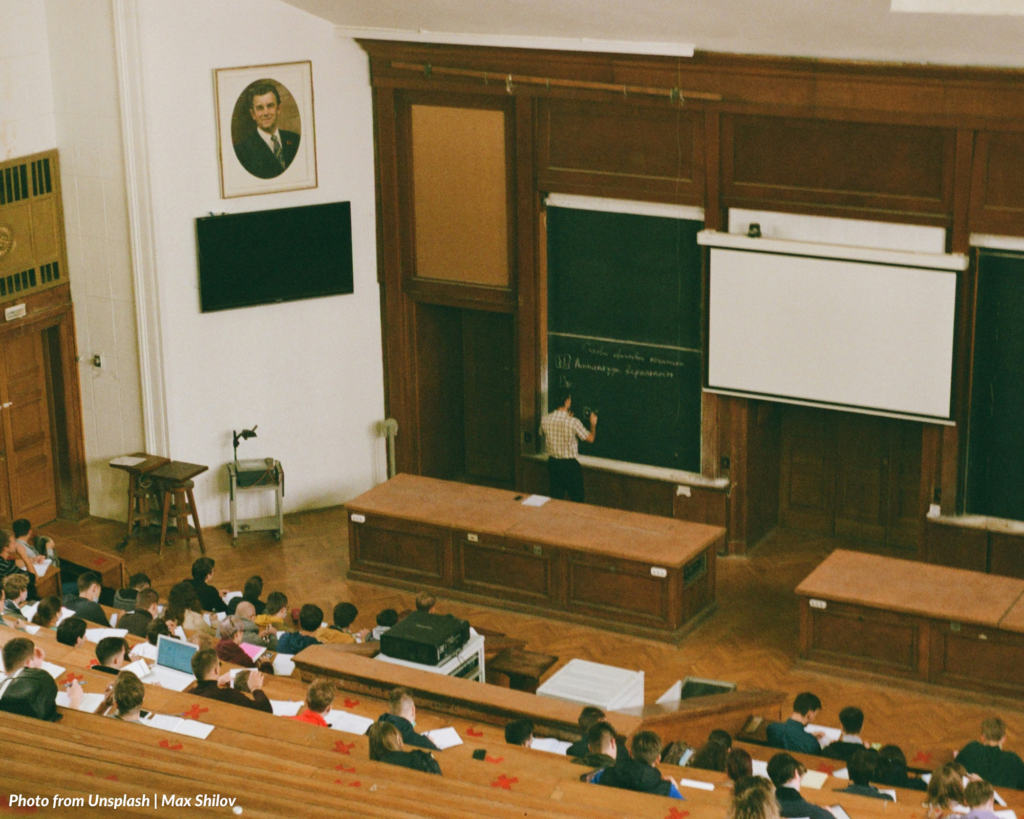
Photo from Unsplash | Max Shilov
The following post does not create a lawyer-client relationship between Alburo Alburo and Associates Law Offices (or any of its lawyers) and the reader. It is still best for you to engage the services of a lawyer or you may directly contact and consult Alburo Alburo and Associates Law Offices to address your specific legal concerns, if there is any.
Also, the matters contained in the following were written in accordance with the law, rules, and jurisprudence prevailing at the time of writing and posting, and do not include any future developments on the subject matter under discussion.
AT A GLANCE:
In case of private school teachers, those who have served the probationary period shall be made regular or permanent.
Full-time teachers who have satisfactorily completed their probationary period shall be considered regular or permanent. (Section 93, 1992 Manual of Regulations for Private Schools)
A part-time employee would not attain permanent status no matter how long he had served the school. (De La Salle Araneta University v. Juanito Bernardo, G.R. No. 190809, February 13, 2017)
Institutional academic freedom carries with it the right to select who are worthy to take part in the education of its students. As held in the case of Vanessa Laura Arcilla v. San Sebastian Recoletos Manila (G.R. No. 235863, October 10, 2022), relationships between institutions of higher learning and their faculty members should not be viewed as simple employer-employee relationships. In evaluating them, courts must accord institutions of higher learning the prerogative to determine who may teach. This includes setting standards for their teachers and determining whether they have been met.
Before a private school teacher secure a permanent status of employment, he/she must undergo a probationary period pending the school’s determination of whether such academic personnel have satisfied the prescribed standards.
Jurisprudence says:
“The standards by which the service of probationary teacher may be adjudged satisfactory so that he may acquire permanence in his employment or security of tenure, are set by the school. The setting of those standards, and the determination of whether or not they have been met, have been held by this Court to be the prerogative of the school, consistent with academic freedom and constitutional autonomy by which educational institutions have the right to choose who should teach.” (Vanessa Laura Arcilla v. San Sebastian Recoletos Manila, G.R. No. 235863, October 10, 2022)
Nevertheless, the autonomy of institutions of higher learning to set standards for their faculties must be tempered with the protection of labor. The school’s determination of who may teach must not be arbitrary. The period of probation cannot exceed the periods prescribed by the rules.
A teaching employee’s vested right to a permanent position shall only accrue after the three-year period. (Vanessa Laura Arcilla v. San Sebastian College-Recoletos Manila, Id.)
The 1992 Manual of Regulations for Private Schools provides that:
“Subject in all instances of compliance with the Department [of Education] and school requirements, the probationary period for academic personnel shall not be more than three (3) consecutive years of satisfactory service for those in the elementary and secondary levels, six (6) consecutive regular semesters of satisfactory service for those in the tertiary level, and nine (9) consecutive trimesters of satisfactory service for this in the tertiary level where collegiate courses are offered on a trimester basis.” (Section 93, 1992 Manual of Regulations for Public Schools)
“Those who have served the probationary period shall be made regular or permanent. Full-time teachers who have satisfactorily completed their probationary period shall be considered regular or permanent.” (Section 93, 1992 Manual of Regulations for Public Schools)
During the probationary period, the standards imposed on probationary academic personnel must be reasonable, well laid, and properly communicated. The standards for regularization must be made known to the probationary faculty members with some specificity and measurability at the time of engagement. The employee must be clearly informed of the job’s functions. (Vanessa Laura Arcilla v. San Sebastian Recoletos, Id.)
In the case of Arlene Palgan v. Holy Name University (G.R. No. 219916, February 10, 2021), the Supreme Court laid down the requisites before a private school teacher may acquire permanent status, or security of tenure, based on the Manual of Regulations for Private Schools. These requisites are:
(1) the teacher is a full-time teacher;
(2) the teacher must have rendered three consecutive years of service: and
(3) such service must have been satisfactory.
Are part-time teachers entitled to security of tenure too?
Jurisprudence says:
“A part-time teacher cannot acquire permanent status. Only when one has served as a full-time teacher can he acquire permanent or regular status.” (Arlene Palgan v. Holy Name University, Id.)
Nevertheless, a part-time employee with fixed-term employment is entitled to retirement benefits. Under Republic Act No. 7641 or the Retirement Pay Law, any employee may be retired upon reaching the retirement age. Under the law’s implementing rules and regulations, the law applies to “all employees in the private sector, regardless of their position, designation or status and irrespective of the methods by which their wages are paid”.
Under the Guidelines for the Effective Implementation of Republic Act No. 7641:
“RA 7641 or the Retirement Pay Law shall apply to all employees in the private sector, regardless of their position, designation or status and irrespective of the method by which their wages are paid. They shall include part-time employees, employees of service and other job contractors and domestic helpers or persons in the personal service of another.”
Related Article/s:
Employment Status of Private School Teachers
Alburo Alburo and Associates Law Offices specializes in business law and labor law consulting. For inquiries regarding taxation and taxpayer’s remedies, you may reach us at info@alburolaw.com, or dial us at (02)7745-4391/0917-5772207.
All rights reserved.


